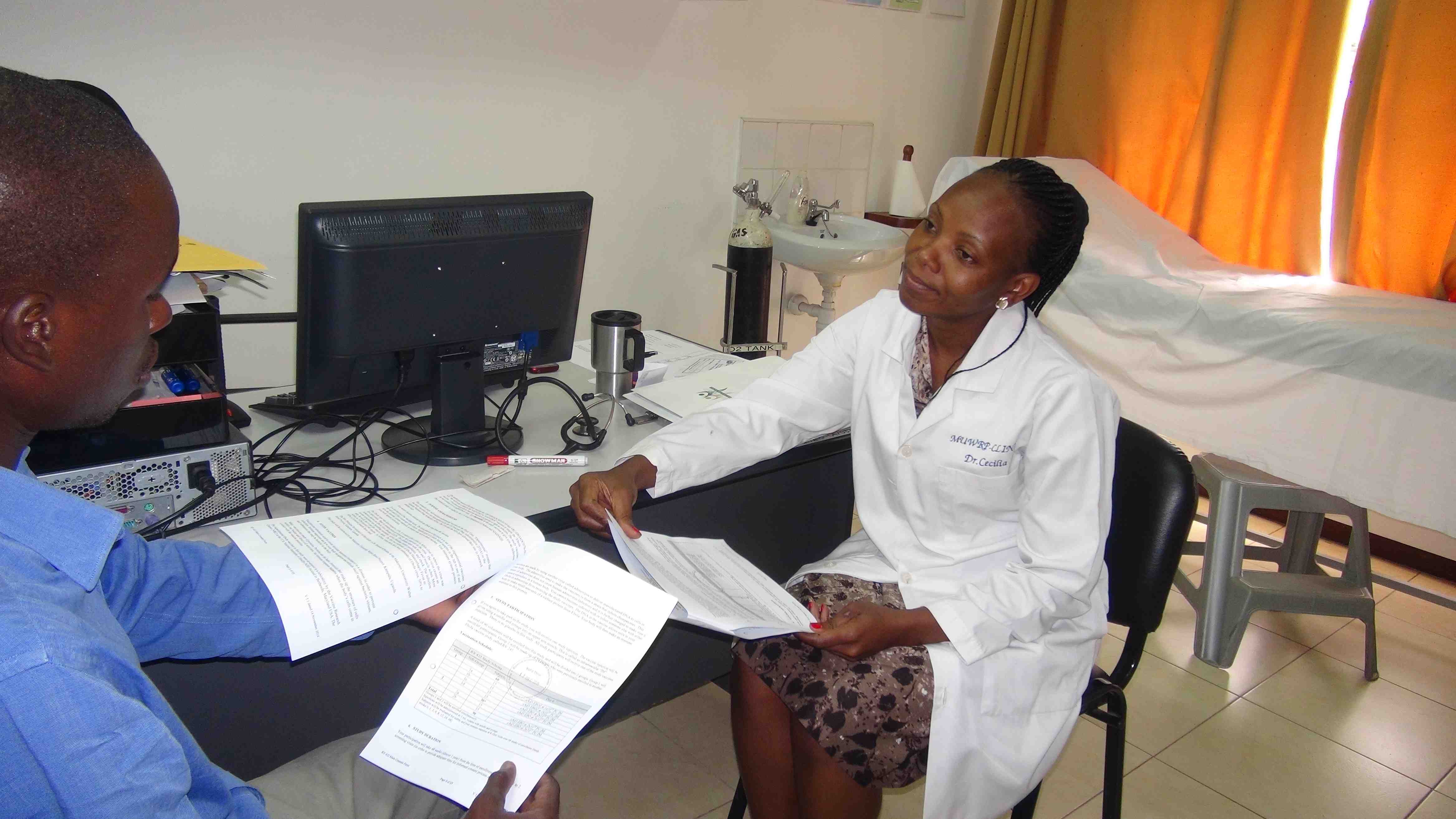New Ebola Vaccine Trial Opens in Uganda

A new Phase Ib clinical trial of two experimental Ebola vaccines began today in Kampala, Uganda. The Makerere University Walter Reed Project, in partnership with the U.S. Military HIV Research Program at the Walter Reed Army Institute of Research, is conducting the study using Chimpanzee Adenovirus Type 3 vector vaccines, co-developed by the Vaccine Research Center, National Institute of Allergy and Infectious Diseases and GlaxoSmithKline. One vaccine encodes for the Ebola Zaire strain glycoprotein while the second vaccine encodes for Zaire and Sudan strain Ebola glycoproteins.
MUWRP conducted the first Ebola Vaccine trial in Africa from 2009 to 2012, using an early-generation DNA vaccine candidate developed at the VRC. The results were published online in the December 2014 edition of The Lancet and those results, in addition to other studies, helped lead to a clinical evaluation of a more potent ChAd3 vaccine. The ChAd3 Ebola vaccine first entered clinical trials in September 2014 in the U.S. with promising Phase 1 results published by the VRC in the New England Journal of Medicine in November 2014.
This Phase Ib clinical trial is sponsored by NIAID, and will enroll 90 participants aged 18 to 65 years from Kampala, Uganda. As part of this new study, about 30 Ugandan volunteers from the 2009 DNA study will receive a boost, or additional injection, with the ChAd3-EBO vaccine to explore a more long-lasting effect of vaccination.
MHRP Support for Ebola Research
For more than a century, the U.S. military medical community has solved many significant international health problems, particularly in the area of infectious diseases. This research expertise, along with a robust international clinical trials infrastructure, is being leveraged to help in the U.S. government's response to the recent Ebola outbreak in West Africa.
The Walter Reed Program-Nigeria, another MHRP site, will begin testing the Zaire strain ChAd3 Ebola vaccine in a larger Phase II study that will take place at 10 sites in four West Africa countries later this year. The virus causing the current West African outbreak is closely related to the Ebola Zaire strain.
The MHRP Department of Laboratory Diagnostics and Monitoring is providing crucial laboratory support for another novel Ebola vaccine being tested at the Walter Reed Army Institute of Research and at multiple sites in the U.S. and Canada. In addition, DLDM's assistant chief, CDR Jennifer Malia, DrPH, U.S. Public Health Service, deployed to Liberia for more than a month to set up and run the laboratory at the Monrovia Medical Unit.
Several MHRP scientists- including MHRP Director Col. Nelson Michael and Lt. Col. Julie Ake - have been consulted by the World Health Organization to assist with the planning of upcoming Ebola vaccine studies in West Africa. They assisted work with local ethical and regulatory authorities as they strived to expedite these research trials in response to the current West Africa Ebola outbreak.
 An official website of the United States government
An official website of the United States government
 ) or https:// means you've safely connected to the .mil website. Share sensitive information only on official, secure websites.
) or https:// means you've safely connected to the .mil website. Share sensitive information only on official, secure websites.


